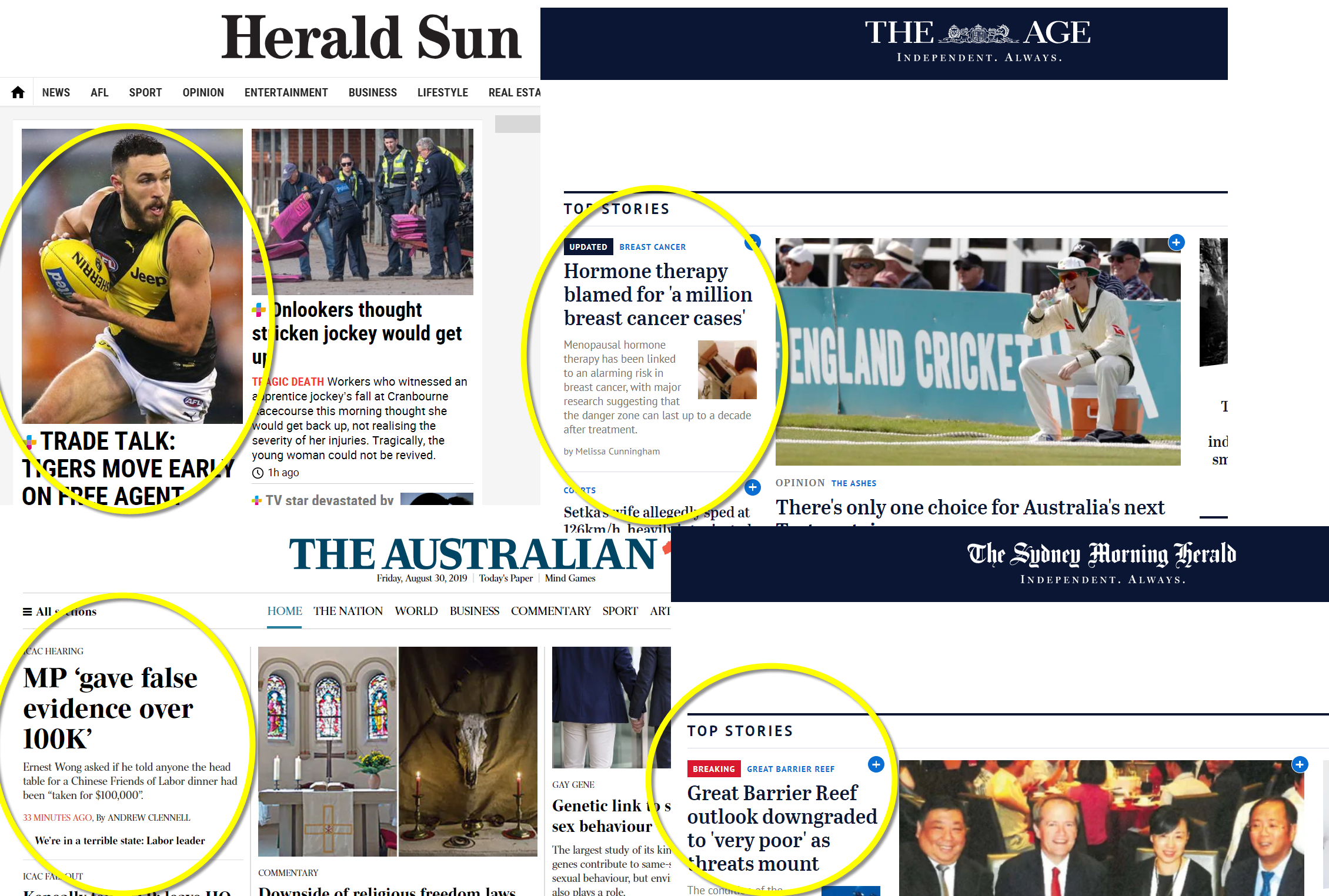“The markets haven’t been very good lately,” the investor said with some concern. “Should we be doing something?”
Markets were off their highs. Trump was being Trump. August had been one of those months. Off nearly 5% in a week. Sideways for the next three. A slight upward burst at the end, but the media had been salivating at the prospect of more losses. The wind had stopped blowing and the seas had calmed. The investor was still thinking about those storm warnings.
“Well the ASX All Ords is up about 19% until the end of August,” the adviser said, bringing up a returns chart.
“That’s strange, I could have sworn we’d been doing pretty badly this year,” returned the confused investor. “Interesting.”
August, and its last day, is an interesting study on why that might be.
Earlier in the month these are some of the headlines leading broadcasts, gracing newspaper front pages and taking the top left on news websites throughout August:
Bloodbath for share markets: Here’s how it affects you
ASX drops 128 points in worst loss of 2019
Trade war wipes $38b off ASX
Aussies’ super smashed as USA-China trade war hits ASX
Australian stock market slumps after US-China trade war prompts Wall Street plunge
Investors told to brace for more volatility as ASX sells off
Yes, it could be recency bias. The tendency to let the most recent events weigh heavily in one’s mind, but that’s only able to occur if a person is confronted by all information.
Below are the homepages of four well known Australian newspapers on that last day in August. The ASX All Ords finished up 93 points that day or 1.4%. It was up over 100 points when these screenshots were taken. You’d think such a great day would have warranted some interest by the media; telling us how many billions had been ‘wiped on the ASX’, what the gain ‘meant for us’ and how important it was for ‘our super’.
After all, those top left corners are usually reserved for important stories reminding us how much we’ve lost on the down days.

Nary a mention.
The day’s gains were buried much further down the page. Positive market news relegated to the business & finance section. Flicking through the nightly news it was a similar story.
Media bias by omission is why investing is so hard. It explains why some people are scared of the sharemarket. It also explains why sharemarket investors regularly think they’re doing worse than they are. If we use months as our guide, 63% of the time the ASX is heading upward. It’s 72% of the time if we’re using years.
The likelihood of a 100-plus point down day leading the news? We can only guess, but we’re assuming it’s very high.
The likelihood of a 100 point-plus up day leading the news?
Looks like zero.





